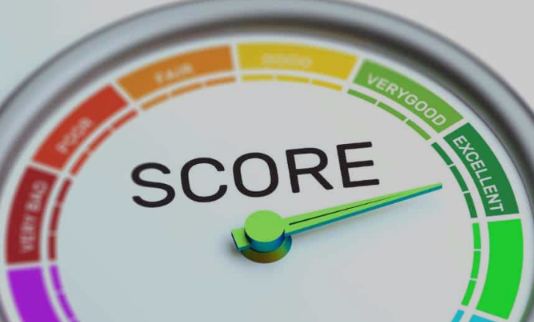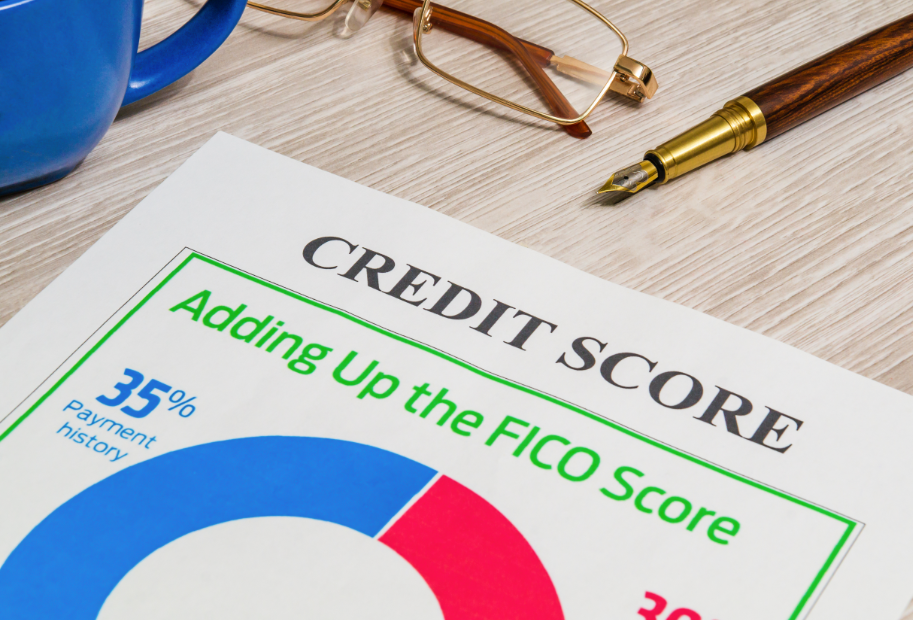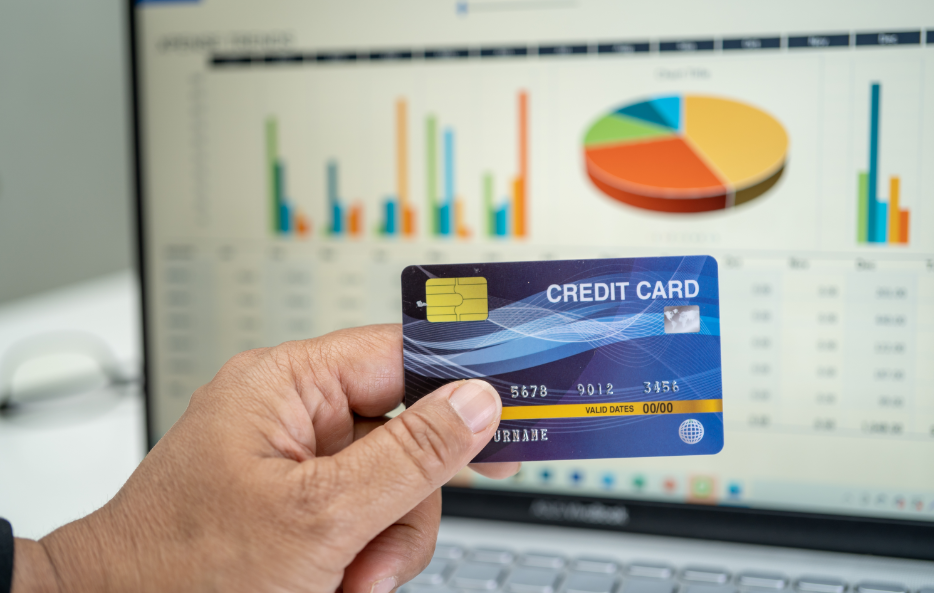
Proven tactics on how to get an 800 Credit Score
In today’s financial world, the quest for an exceptional credit score is more than a mere number—it’s a passport to a myriad of financial opportunities. While the average credit score might be sufficient for some financial undertakings, securing a mortgage or personal loans can be significantly easier and cheaper with an outstanding credit rating. An 800 credit score is considered exceptional and opens up doors that remain closed for those with average or even good scores.
This coveted figure implies you’ve displayed responsible behavior over a considerable time and lenders are more likely to trust you with their money. A journey of a thousand miles begins with a single step—your ambition to elevate your current situation must be underpinned by meticulous planning and execution of proven tactics.
Credit scores range from 300-850—with those in the higher echelons considered as low-risk borrowers by lenders. A multitude of factors impacts your credit score: payment history, debt levels, duration of the established credit history, types of available credits (credit cards or loans), and new lines of credit opened.
Achieving an 800 credit score is not an easy feat, but with the right tactics and strategies, it’s definitely possible. In this article, we will dive into proven techniques that can help you reach that coveted 800 credit score mark.
You might be wondering, “Why should I even bother aiming for an 800 credit score?” Here are some compelling reasons:
The perks associated with an 800 credit score
Having an 800 credit score comes with a host of perks that can significantly benefit your financial life.
First, it can lead to higher credit limits. Lenders are more likely to extend generous credit limits to individuals with excellent credit scores, allowing you to have greater purchasing power and flexibility.
Second, an 800 credit score can result in lower interest rates on loans and credit cards, saving you money in the long run. With a high credit score, you are seen as a low-risk borrower, making you eligible for more favorable terms and conditions. Whether it’s a mortgage, car loan, or personal loan, the interest savings can add up to thousands of dollars over the life of the loan.
Third, in addition to lower interest rates, having an 800 credit score opens the door to better credit card perks. Card issuers often reserve their most exclusive rewards programs and elite airline miles, cashback rewards, and premium benefits that can enhance your financial lifestyle.
As for mortgages, a high credit score can lead to substantial savings in this area. With an 800 credit score, you are likely to qualify for the most competitive loan terms, including lower interest rates and reduced closing costs. Over the term of a mortgage loan, these savings can amount to tens of thousands of dollars.
As you can see, an 800 credit score comes with numerous benefits, including higher credit limits, lower interest rates, better credit card offers, significant savings on mortgage loans, and may even be a determining factor when it comes to employment, apartment hunting or securing utilities without needing a deposit. The same applies to certain auto insurance companies and even cell phone contracts – all facets of daily life where costs can be reduced purely on the merits of your superior credit score. This achievement brings with it a sense of security. By maintaining excellent credit habits and managing your credit responsibly, you can enjoy these perks and establish a solid financial foundation.

Factors That Impact Your Credit Score
Understanding the factors that influence your credit score is essential to improving it.
- Payment History: Your history of making payments on time significantly impacts your credit score. It includes payments for credit cards, student loans, car loans, and mortgages.
- Credit Utilization: The ratio of your credit card balances to your credit limits affects your score. Lowering your credit card balances can lead to a lower utilization rate.
- Length of Credit History: The longer your credit history, the better it is for your score. This emphasizes the importance of maintaining old accounts.
- Types of Credit: Having a mix of credit types, such as credit cards, installment loans, and mortgages, can positively affect your score. This can also affect the types of loans you qualify for, such as a mortgage.
- New Credit: Opening too many new accounts in a short period may lower your score. Carefully consider the implications before applying for additional credit cards or loans.
Strategies for Improving Your Credit Score

Paying Off Debt: 35%
The most influential factor is payment history which accounts for 35% of a FICO Score. It reflects whether you’ve paid past credits on time or not.
- Prioritize High-Interest Debts: Start by paying off high-interest debts first, as this will reduce the overall interest burden. This can include credit cards, car loans, and other high-interest loans.
- Create a Repayment Plan: Develop a budget that allocates extra funds toward debt repayment. This will help you make substantial progress in becoming debt-free.
- Debt Snowball or Debt Avalanche: Choose between the debt snowball method (paying off the smallest debt first) or the debt avalanche method (paying off the highest interest debt first) based on your preference.
Keeping Credit Card Balances Low: 30%
The second influential factor is the amount owed which attributes to 30% of a FICO Score. It revolves around how much you owe on your different types of credits at any given moment compared with how much available credit you have or how much you initially borrowed for installment loan accounts; a term referred to as ‘credit utilization ratio’.
- Lower Credit Utilization: Aim to keep your credit card balances well below your credit limits, ideally below 30%. This will not only improve your credit score but also save you money.
- Resist Unnecessary Spending: Avoid accumulating new credit card debt by making only essential purchases. Be mindful of your credit card balances and consider your financial goals.
Building a Positive Credit History: 15%
Next comes the length of your credit history which constitutes about 15% of a FICO Score.
It measures the duration since each account was opened and the time that has passed since the most recent account action. A longer established credit history with active usage usually leads to better scores as it shows more experience in handling debts responsibly.
- Maintain Old Accounts: Keep older accounts open, as a longer credit history can boost your score. This includes your mortgage and older credit cards.
- Use Credit Responsibly: Continue using your credit cards but do so responsibly by paying your bills on time and in full. This will demonstrate your ability to manage credit effectively.
- Avoid Closing Accounts: Closing credit card accounts can shorten your credit history, potentially harming your score. Only close accounts if they don’t align with your financial goals.

New Credit: 10%
New Credit forms about 10% of a FICO Score and considers several aspects like the number of newly opened accounts and recent inquiries from companies where you’ve applied for new credits (like personal loans or mortgages). If several new accounts are being opened within short periods, especially by people who haven’t been managing their debts effectively; this could represent greater risk leading to lower scores.
- Credit Card Gimmicks: Everywhere you go, there’s someone offering a discount on gas purchases, cash-back rewards, hotel room upgrades, flight miles, or free baggage with the hope of selling you their branded credit cards. Many of these offers are very tempting which is how many of us find ourselves with more debt and lower credit scores.
- Inquiries: Just the process of looking into these offers can have an adverse effect on your credit score as each of these companies does a “hard inquiry” of your credit. Granted, this category only represents 10% of your overall score, but that difference could mean being just under the threshold you need or want for another type of credit score perk or approval.
Credit Mix: 10%
‘Types of Credit Used’ also accounts for 10% of a FICO Score. It analyses the mix of various credit components like credit cards, retail accounts, installment loans, mortgage loans, and consumer finance company accounts.
- It Comes Naturally: Don’t be so consumed with achieving an 800 credit score that you open a car loan, student loan or personal loan just to diversify your credit mix. You’ll know if and when you’ll truly need one of these loans.
- Get The Credit You Deserve: Some companies won’t report to the credit bureaus. Credit unions are known for this as well as some smaller mortgage lenders. If you don’t see them reporting on your credit, reach out to their customer service department and make that request.
Monitoring Your Credit Report
- Regularly Check Your Report: Request your free annual credit reports from the three major credit bureaus: Equifax, Experian, and TransUnion. Review them carefully to ensure accuracy.
- Identify Errors: Review your credit reports for inaccuracies, such as incorrect late payments or accounts that don’t belong to you. Dispute any errors you find to improve your credit.
- Identify Inaccuracies: Some credit card companies (i.e. AMEX, Capital One) won’t report your approved-for high credit limit. Instead, they report the highest amount you’ve used as your limit. Thus, if you have a $10,000 credit limit but only used $1200 and now have a balance of $900, it appears that you’ve almost maxed out your card, which will hurt your credit utilization score.
- Use Credit Monitoring Services: Consider using credit monitoring services to receive regular updates on your credit score and any changes to your credit report. This will help you stay on top of your credit score. Credit Karma is one that I’ve used.
Avoiding Credit Score Mistakes
Late Payments: Always pay your bills on time to avoid late payment penalties and negative marks on your credit report. This includes mortgage payments, car loan payments, and credit card bills. Paying your financial obligations in a timely manner is the most significant factor is your payment history, which accounts for approximately 35% of your credit score. Paying your bills on time consistently is essential for maintaining a good credit score.
Maxing Out Credit Cards: Keep your credit card balances well below your credit limits to prevent high credit utilization. Strive to keep your credit card balances low. Your credit utilization ratio makes up about 30% of your credit score. Credit utilization refers to the percentage of your available credit that you are using. Keeping your credit card balances low (preferably under 30%) and using credit responsibly can positively impact your credit score.
Closing Old Accounts: Many people mistakenly think that “cleaning up” their credit means closing accounts. The length of your credit history, which accounts for around 15% of your credit score, is also important. Lenders prefer borrowers with a long credit history, as it demonstrates their ability to manage credit over time. So, avoid closing old credit card accounts, even if you no longer use them. The length of your credit history is an essential factor in your credit score. Keeping old accounts open can positively impact your score.
Applying for Too Much Credit: Avoid opening multiple new credit accounts within a short timeframe, as it can lower your score. Carefully consider the implications before applying for additional credit cards or loans. New credit, along with credit mix, make up the remaining 20% of your credit score. Having a mix of different credit types, such as credit cards, loans, and a mortgage, can demonstrate your ability to handle various types of credit responsibly. Applying for new credit sparingly can also help maintain a good credit score.

Now that we’ve done an overview of the strategies and know what we should do, let’s do a deep dive into HOW we can do it.
Paying Off Debt
The first step in improving your credit score is to pay off your debts. High balances on your credit cards can negatively impact your credit score, so it’s important to keep your balances low. Start by reviewing your credit report and making a list of all your outstanding debts.
Next, prioritize your debts based on their interest rates and pay off the ones with the highest rates first. This will not only help you save money on interest charges but also improve your credit utilization ratio, which is a significant factor in determining your credit score.
Another strategy is to consider transferring high-interest debts to a low-interest credit card or taking out a personal loan to consolidate your debts. This can help you lower your overall interest rate, and make it easier to pay off your debts faster while also improving your credit utilization ratio.
One effective strategy for tackling debt is focusing on one account at a time while maintaining minimum payments on other accounts. Concentrating on one target at a time, allows you to make substantial progress and stay motivated as you see the outstanding amount decrease notably.
Often referred to as the ‘avalanche’ or ‘snowball’ method depending upon which account—the highest interest rate or smallest balance—is singled out first for repayment. This approach can yield significant reductions in owed amounts. This article goes into more detail on these programs.
One method I’ve used is to put all my debt on autopay except for the one that I am concentrating on paying off so that I don’t accidentally miss a due date. If you know how much you can afford to pay on the debt you are concentrating on, you can set that as an autopay as well but at a higher repayment rate.
A word of caution: If you set up an “autopay” account, I would highly recommend that you monitor it, at least for the first couple of months, to make sure there is no problem with the setup and that it pays as scheduled.
However, if multitasking seems more appealing to your financial sensibilities, then consider dividing any additional funds amongst all debts proportionally based on their balances or interest rates. This method ensures gradual reductions across all accounts simultaneously while keeping overall interest accumulation at bay.
Furthermore, consider consolidating multiple high-interest debts into a single lower-interest loan such as a personal loan or home equity line of credit when looking into how to raise my credit score. Consolidation could potentially lower your monthly payments and simplify the management of these obligations by reducing them into one consolidated payment. However, if you do this don’t be tempted to add more debt to those newly paid off credit cards. Additionally, don’t close those paid-off credit card accounts. Doing so will lose valuable history data and you may see a drop in your credit score.
Remember that timeliness significantly influences the process of achieving an 800 credit score: ensuring prompt payment not only avoids late fees and potential interest rate hikes but also builds up a history that better appeals to mortgage providers and other lenders who closely consider punctuality when evaluating applications. While the endeavor towards an 800 credit score involves several factors beyond repaying debts—such as maintaining low balances on credit cards—it’s crucial not to overlook this important aspect of your financial health.
As intimidating as it may initially appear, prioritizing debt repayment can lead to substantial credit score improvements and bring you significantly closer to your goal of reaching that coveted 800 milestone. After all, if every financial journey begins with a single step—why not let that step be towards clearing your debts?
Keeping Credit Card Balances Low
Maintaining a low balance on credit cards is a cardinal rule in the world of personal finance. The capacity to judiciously use your credit cards and keep the balances low is a reflection of your financial discipline. This sends a positive signal to credit rating agencies and can inch you closer to that elusive 800 credit score. Understand that not all debt is perceived as negative by rating agencies – it’s essentially how you manage it that counts.
So, in addition to paying off debt, keeping your credit card balances low is essential for improving your credit score. Ideally, you should aim to keep your credit utilization ratio below 30%.
To achieve this, consider using your credit cards for essential purchases only, such as groceries or gas, and paying off the balance in full each month. This will help you avoid interest charges and show lenders that you’re responsible with your credit.
If your priority is improving your credit score over paying off debt, instead of jumping headlong into the Debt Snowball or Debt Avalanche, you may want to consider paying down the debts with the highest credit utilization ratio (the ones with the lowest remaining available credit). Once you’ve done this, you can jump into one of these other debt-reducing strategies.
Another credit-utilization strategy is to request a credit limit increase. This can help improve your credit utilization ratio and give you more available credit to use in case of emergencies. However, be careful not to overspend just because you have a higher credit limit.
Building a Positive Credit History
Your credit history is a vital component of your credit score, so it’s essential to establish a positive credit history. This means paying your bills on time, every time.
Late payments can significantly impact your credit score and stay on your credit report for up to seven years. To avoid this, set up automatic payments or reminders to ensure you never miss a payment.
Lenders interpret long-standing accounts with good standing as proof of reliable financial behavior increasing their confidence in lending resources which eventually leads you towards that 800 Credit Score milestone. Whether it’s student loans or personal loans, mortgages, or store brand cards – every type of debt holds an opportunity for reinforcing a positive history provided it’s handled responsibly – by meeting payment schedules punctually and maintaining balanced utilization.

New Credit / Credit Mix:
I lumped these two together as they each represent 10% of your credit score. We’ve already discussed avoiding the temptation of getting too many credit cards. By the way, it’s been my experience after seeing thousands of credit reports over the past 40 years in the lending business, that three cards is optimal.
As for the mix of credit types, this is one strategy that I employed in my early years: I owned a car with no lien, so I went to a local credit union, secured a low-interest auto loan, and paid off my high-interest credit cards. By doing this, I improved my “credit mix”, lowered by credit utilization ratio drastically, and was able to pay the loan off quicker because of the lower interest rate.
It took about three months for this to be fully reflected in my credit score but it was a sizeable improvement. As previously discussed, having a diverse range of credit accounts, such as a mortgage, car loans, student loans, and credit cards, shows that you can handle different types of debt. Lenders and credit bureaus view this positively because it indicates that you are capable of managing various financial obligations responsibly.
Avoiding Credit Score Mistakes
While there are many strategies for improving your credit score, there are also common mistakes that can negatively impact your score. These include:
– Closing credit card accounts: Closing a credit card account can decrease your available credit and increase your credit utilization ratio. Instead, consider keeping the account open and using it sparingly to maintain a positive credit history.
– Applying for too much credit: Applying for multiple credit cards or loans within a short period can make you appear desperate for credit and negatively impact your credit score. Instead, only apply for credit when you need it and space out applications over time.
– Ignoring your credit score: Ignoring your credit score can lead to missed opportunities and prevent you from achieving your financial goals. Regularly monitoring your credit score and taking action to improve it is essential for long-term financial success.
Diligence Pays Off
Regularly monitoring your credit report is crucial for maintaining a good credit score. It allows you to identify errors or fraudulent activity and take action to correct them.
You’re entitled to one free credit report from each of the three major credit bureaus – Equifax, Experian, and TransUnion – each year. Take advantage of this and review your credit report for accuracy.
If you find any errors, such as incorrect account balances or unauthorized accounts, dispute them with the credit bureau as soon as possible. This can help improve your credit score and prevent any further damage to your credit.
Need to raise your credit score quickly? Check out this article.
Don’t know why your credit score suddenly dropped? Check out this article.
Want a sample credit dispute letter? Get it free here.
Want a faster way to pay off all your debt? Check out this video.
For help with your credit,click HERE.
Related Posts:
- Avoid These 7 Common Credit Score Misconceptions
- Raise credit score 100 points overnight: Proven Tips
- The hidden strategies behind debt-free living
- Outsmarted by credit cards?
- Overcoming credit card temptations for a debt-free life